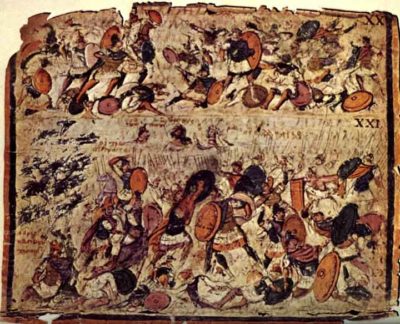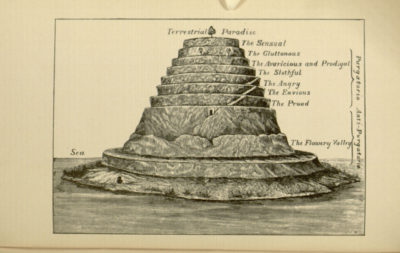Humanities Student Accepted to Harvard Law School
Fourth-year student in the Bachelor of Humanities (HUMS), Roy Sengupta was recently offered admission to an array of prestigious graduate school opportunities (alongside fellow HUMS student, Lulu Vulpe Albari), including admittance to Harvard’s the eminent Harvard Law School.
Although an undergraduate education in the liberal arts may not be the most common first post-secondary step in the arduous pursuit of becoming a lawyer, Sengupta believes that the Bachelor of Humanities program at Carleton University superbly provided him with all the tools necessary to attain post-graduate excellence.

Sengupta has yet to make any final decisions about where he will be studying next year, but his successful admissions to some of the world’s greatest educational institutions functions as a symbol for what can be achieved through a degree in the arts.
Sengupta was kind enough to have a chat with FASS about his massively impressive accomplishments, and how Carleton’s versatile Bachelor of Humanities program helped him to realize them.
Why did you choose Carleton University’s Bachelor of Humanities program?
In my senior year of high school, I had many options to choose from for my undergraduate degree, including the University of Toronto, Queen’s University, and the University of Ottawa, as well as the Bachelor of Humanities program at Carleton University. In order to make a more informed decision, I toured all of these programs and universities, and it was during the touring process, I would say, that the Bachelor of Humanities program first stood out to me. I was immensely impressed by the tour I received of the Bachelor of Humanities, and by the fact that, during the tour, I was able to substantially engage and interact with professors of the program. The program seemed to offer a much more personal, broad, and intellectual education than what was offered at some of the other universities.
Even more importantly, I felt that, at the Bachelor of Humanities program, I was more than just a number. I believed, and have been proven correct, that I would be able to develop meaningful relationships with knowledgeable faculty through the Bachelor of Humanities program. As I began to explore the curriculum of the Humanities program, I was also very impressed. I liked the fact that the Bachelor of Humanities stressed a broad-based education, such that a student would come away from the program having learned about religion, philosophy, literature, politics, music, art, and so much more. I felt that this broad-based, and yet cohesive, approach compared positively to other undergraduate programs. I also noted, with favour, that the Bachelor of Humanities program emphasised discussion groups and primary source readings. I was glad that my educational experience in the Bachelor of Humanities program would not consist merely of reading out of textbooks, but that I would rather gain access to some of the most meaningful texts of human history, from the Iliad to Don Quixote.

My experience with Carleton University during the admission and registration processes was also very positive. I found that the admissions material for Carleton University was cleanly organised, well laid out, and seemed to indicate an extra degree of effort on the part of the admissions office. Carleton seemed to be, and is, a university dedicated towards the success of every individual student. From the generous financial aid offered by Carleton to the numerous supplementary academic programs offered by the university, Carleton seemed serious about ensuring and enabling the academic success of all students. Whereas I worried that I would have an impersonal educational experience at other large universities, I never felt this fear with Carleton University. For these reasons, the choice to attend Carleton University and the Bachelor of Humanities program was clear.
Could you describe your general experience of the Bachelor of Humanities program?
Overall, I have found the Bachelor of Humanities to be a very intellectual program, and to be a program which supports intellectual development and growth through close student-faculty interaction. I am constantly amazed at the amount of meaningful contact I am able to have with professors on a day to day basis in this program, and I absolutely feel that the conversations I have had with my professors have contributed immensely to my own academic development. Not only this, but I have found that the culture of the Bachelor of Humanities program is also very intellectual. Students in the Bachelor of Humanities love what they do and love what they study. You don’t see the same kind of cynicism among students as you may in other places, rather, student are genuinely engaged with the material of the program. I feel that this culture among the student body creates an environment of academic success and critical thinking, and I certainly do feel that the intellectual passion of my peers has helped to spur and encourage my own intellectual passions.
The distinctive features of the Bachelor of Humanities program have also played a major role in my success. I feel like I was better able to engage with and understand the challenging material in the Humanities program thanks to the weekly discussion groups hosted by professors. Not only this, but I found the discussion groups to be a fantastic way of learning about academic and formal discourse. What the discussion groups encourage you to do is to speak before your peers in small settings. I have found these discussion groups to be immensely helpful in improving my public speaking. By forcing me to elaborate upon complex thoughts to both my professors and my peers, the discussion groups served to improve my diction and confidence in public speaking. After all, if I was able to speak meaningfully and cogently on a topic like the Iliad, I ought to be able to speak on any topic. I found, in particular, that the discussion groups were helpful in allowing me to succeed during the law school interview process. Having already had regular experience in organizing and expressing complex thoughts in a disciplined manner, law school interviews proved to be far less intimidating.
I have found the Bachelor of Humanities to be a very intellectual program, and to be a program which supports intellectual development and growth through close student-faculty interaction. I am constantly amazed at the amount of meaningful contact I am able to have with professors on a day to day basis in this program, and I absolutely feel that the conversations I have had with my professors have contributed immensely to my own academic development. Not only this, but I have found that the culture of the Bachelor of Humanities program is also very intellectual. Students in the Bachelor of Humanities love what they do and love what they study.
– Roy Sengupta
Finally, I believe that the strong emphasis placed on writing in the Bachelor of Humanities also played an important role in my achievements. Almost all of the exams in the Bachelor of Humanities program are primarily essay based, and intensive attention is given to the essay writing abilities of students in the program. I feel that the strong writing abilities which I garnered from the program were immensely helpful in allowing me to craft a meaningful personal statement for my law school applications. The ability to express oneself in written form is an invaluable skill, and the small class size of the Bachelor of Humanities program allows the faculty to give individualized attention to the writing of every student. The faculty makes a great effort to ensure that each student’s writing abilities improve gradually over the course of the four-year program, such that one is able to leave a substantially more articulate writer by the time one leaves the program.
How did your personality ‘click’ with the Bachelor of the Humanities program? Could you discuss some of the reading that helped to shape your perspective?
I feel that I was successful in the program in large part thanks to my open-minded and inquisitive personality. I definitely think that, at least to some extent, you need to be someone who enjoys reading in order to gain the most success possible out of this program. Being open-minded to different points of view, and to different ways of seeing the world, is also crucial. In the Humanities program, you are exposed to so many different systems of thought, and you need to be as open-minded and curious about ideas you disagree with, as about ideas that you agree with. I think that this also happens to be one of the important skills of a lawyer. I also feel that I was successful in the program thanks to a certain versatility of mind. In the program, you study a wide diversity of different subjects, from music, to philosophy, to art, to religion, and you therefore need to have the ability to engage with different kinds of material, and to bring different sorts of material together into a cohesive understanding. I absolutely believe that any open-minded and inquisitive person can succeed in this program, as you will be given the support and the guidance to understand and engage with different kinds of thinking, as long as you are willing to do so.
This may be a somewhat surprising pick, in terms of a book that sparked my interest in the law, but the three books of Dante’s Divine Comedy, in particular Inferno and Purgatorio (in English, Hell, and Purgatory respectively), played a major role in developing my interest in the law. Dante’s Inferno is probably one of my favourite books of all time, because of its rational and logical portrayal of the idea of divine justice. Dante creates, in his Divine Comedy, a well-planned, logical system by which each person is assigned a just outcome in the afterlife for their actions during life. So, for example, a wrathful person in Hell is condemned to an afterlife of fighting and anger, whereas a thief is condemned to have his identity stolen from him in Hell. Dante goes to great lengths to ensure that the punishment for each kind of sinner fits the sin which they have committed. In short, he tries to envision an afterlife where everyone is dealt a just outcome. I also particularly like Dante’s Purgatorio for the fact that it suggests that there is a possibility for sinners to be rehabilitated in their afterlife, as long as they indicate their desire to change through repentance. Dante creates a sort of justice system in the afterlife, and this led me to greatly ponder what justice truly means, and how those who commit crimes ought to be punished.

Another work that greatly influenced my interest in the law was Shakespeare’s Measure for Measure. In this play, Shakespeare considers what the appropriate parameters of the justice system ought to be, how a judge ought to act in enforcing the law, and how one holds a judge accountable for unjust rulings. I would say that the main message of Measure for Measure is that, without mercy and compassion, justice quickly turns to tyranny. One of the main characters in the play is Angelo, an extremely harsh judge who imprisons a citizen of the realm, Claudio, for a sexual misdemeanor. When Claudio’s sister intercedes on his behalf to Angelo, Angelo attempts to exploit the situation to secure inappropriate sexual favours from the sister. The play then becomes a story of how someone in a position of power, Angelo, can be brought to justice for misuse of that power. For this reason I believe this is a powerful and timeless story. It asks questions regarding the boundaries between justice and cruelty, and about how we can hold the powerful to account when they stray from what is right.
In terms of the shaping of my general worldview, I am a very avid reader of historical non-fiction. I am firm believer in learning from the mistakes and successes of the past. I believe that the best works of historical non-fiction not only recall events, but provide effective explanations as to why the events of that historical era occurred. In this way, great works of historical non-fiction are able to provide timeless lessons that continue to apply to the present day. Two of the great works of historical non-fiction that I feel do this very effectively are The Rise and Fall of the Third Reich by William L. Shirer, and Nixonland by Rick Perlstein. Both of these books are historical non-fiction par excellence, and the reader will come away from them not only with a working knowledge of the historical events of those eras, but also of what can cause political and social change, and how human behaviour influences politics and the law. Both books provide clear explanations as to why things changed in the way they changed, and why politics, institutions, and ideas evolved in the way they did during their respective eras.
Did you participate in the mentorship program? If so, can you tell us about that experience?
I, unfortunately, did not participate extensively in the mentorship program, however, I do believe that Carleton University as a whole provided excellent resources for exploration into a legal career path. In particular, I was extensively involved in the Carleton Law & Legal Studies Society (CLLSS), and in the moot team associated with the Society. Both the events of the CLLSS, and the networking opportunities made available at such mooting competitions like the Capital Cup, hosted at Carleton University each year in the autumn, provided excellent opportunities to learn more about the legal profession and to interact with legal professionals in varied fields. For example, the CLLSS Moot Team is privileged to have, in many cases, professional lawyers judging the practice panels of the team. As you might imagine, these professional panels provide excellent opportunities for one to hone skills of legal reasoning, and to meet with and interact with legal professionals.
I also felt that Carleton University provided great opportunities for undergraduate students to become involved in research, and these opportunities also helped to shape my interests in the law. For example, I have developed a significant interest in infrastructure law as a result of research work done at the university, and so I would definitely encourage students to pursue research opportunities at the university, as these opportunities can lead to in-depth exposure to a variety of different fields. Overall, I am very pleased with the resources which Carleton University offered to me, in order to allow my exploration into the legal profession.
You have some serious decision making and planning to do! Can you speculate on what might be your next steps?
Of course, I am grateful to have many generous law school offers on the table, including offers of admission from schools such as Harvard Law School, Columbia Law School, and the University of Toronto Faculty of Law. As well, I have received many generous scholarship offers from schools such as the Queen’s University Faculty of Law, The University of Pennsylvania Law School, and the University of Chicago Law School. I would say that nothing has been finalized yet, but I am certainly flattered to have attracted such generous offers from so many well-regarded law schools. I imagine I will be touring each of these law schools in the near future, and making a decision based on those tours and other factors.
Anything you’d like to add or people you’d like to thank or parting words of wisdom?
I really would just like to thank the entire Carleton community, the faculty in the Bachelor of Humanities program, all the professors who generously made time to write letters of recommendation for me, and all the individuals inside and outside the university who I have worked with in various capacities, be it as a research assistant, volunteer, intern, or in any other capacity. As well, I of course would also like to thank my family and friends for their support during this process. Thank you to all of those who have given me the opportunity to succeed in this way. Carleton University and the Bachelor of Humanities has been a fantastic place to spend four years, and, as I have spoken to earlier, it has provided an excellent foundation for my present and future success. I really do believe that this is one of the best universities in Canada. From the excellent support offered to students, to the myriad extra-curricular opportunities, to the well-functioning administration and unique programs, such as the Bachelor of Humanities, Carleton University offers so many different tools to ensure the success of each of its students.
I would say if I was to give any words of advice, it would be that people should take chances. I certainly could not have anticipated four years ago that I would be accepted to Harvard Law School, but a big part of why I was offered admission was simply because I was willing to take the chance and apply there in the first place. And I think that’s important, that people think big, dream big, and strive to do significant things in whatever field they are passionate about. And I absolutely believe that, while it may be cliché, it is true that hard work is the enabler of success. At the end of the day, you have to be willing to work harder and put in more time than the competition in order to succeed, in whatever endeavour you hope to succeed at. So think big, and work hard to achieve your dreams.